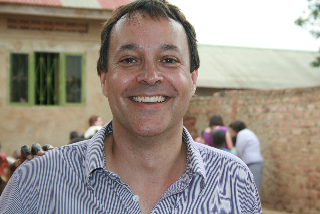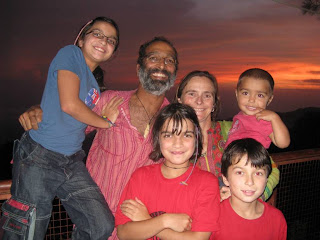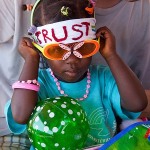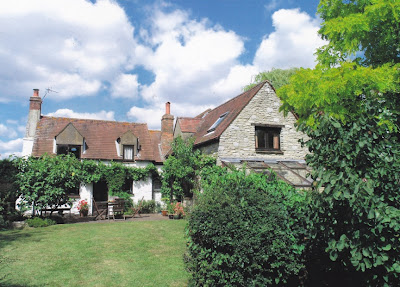Today’s lovely guest post is by Julian Clarke, a Husband – Father of 4 – Mission-minded Marketeer and Musician–Volunteer and supporter of the most wonderful organisation in the world: Viva – Together for Children http://www.viva.org/home.aspx—Sales Director of Caseco a company supplying opticians www.caseco.co.uk
Follow Julian on twitter http://twitter.com/julianclarke
 |
| Julian Clarke |
Jules’ Meek Speak
The first time I heard “The meek shall inherit theearth” it was sung, spliced between power-chords and drum fills, the likeof which I’d never heard before (for those who’re familiar with the Canadian band Rush, you’ll know what I mean).
As I was swung left and right in a coach climbing through the Alps (on a school skiing trip) the red Walkman introduced me to music that on reflection seemedto alter the trajectory of my adolescence. The ensuing period of my life, ironically, could be described more as care-less than care-free.
I went there, did that, bought the T-shirt and thankfully buried it with Christ just over a decade later. This was not however before being threshed by the words of 2 Timothy 3: 1-9. After I read the list it was safe to assumeI had a distinct lack of meekness.
He pushed through fear. Now does that sound like our take on “meek”to you?
Forgive me, I can’t remember who said (when considering ministers regretfullycaught in sin that so easily entangles) “We can only go as far as our character runs deep.” For me meekness encompasses that quiet quality ofcharacter that embraces perseverance – sheer bull-headed single-minded perseverance that doesn’t shout about it or perform to the camera.
 |
| Brendan, from the Viva Project, Kampala, Uganda |
Brenden did it anyway. Not only that but every morning he opens the compound doors to another 120 children from the nearby community to share breakfast.
 |
| Some of the 120 children rescued by Brendan, aged 21. Kampala, Uganda |
I often say that in Uganda life seems more “alive” and I wonder why that is – the extremes of life there maybe. Or perhaps it’s because amongst the desperate ashes there is true beauty manifested by the hearts and actions of young men and women like Brendan giving up their lives to help the poor, marginalised and suffering (can you see the parallel with our Lord?)
Is that the nub of it? That meekness emanates from the cross of Christ and that the fruits and evidence of heaven can be glimpsed (inherited from his last will and testament) in the here and now. That inwardly we should aspire to meekness defined by the cross and the pull of that which we all struggle against with futility – to die to ourselves and to our preferred ways of doing life.
In summary – “Seek first the kingdom of God and all these things will beadded to you” Matthew 6v33
How will you seek it?
*The names of children and adults mentioned in this blog have been changed in accordance with Viva’s confidentiality and safety policies.







